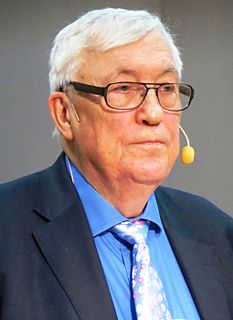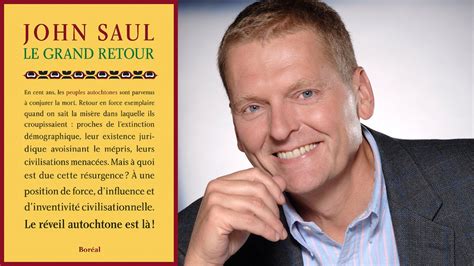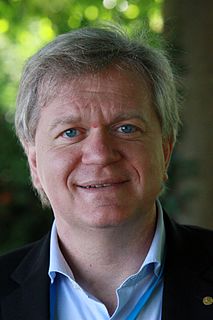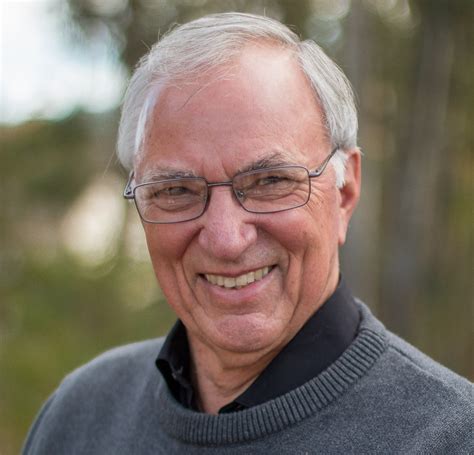A Quote by Marvin Minsky
It makes no sense to seek a single best way to represent knowledge-because each particular form of expression also brings its particular limitations. For example, logic-based systems are very precise, but they make it hard to do reasoning with analogies. Similarly, statistical systems are useful for making predictions, but do not serve well to represent the reasons why those predictions are sometimes correct.
Quote Topics
Also
Analogies
Based
Because
Best
Best Way
Brings
Correct
Each
Example
Expression
For Example
Form
Hard
Knowledge
Limitations
Logic
Make
Makes
Making
No Sense
Particular
Precise
Predictions
Reasoning
Reasons
Represent
Seek
Sense
Serve
Similarly
Single
Sometimes
Statistical
Systems
Those
Useful
Very
Way
Well
Why
Related Quotes
Climate change is there as a reminder that we can get richer and safer societies that are also consuming more and more to the point where the stability of Earth's systems is being challenged at potentially catastrophic levels. I don't think we can stop that. Just the very same worries I have about prediction on the positive progressive side - I mean, predictions that say we'll be great, we'll be fine - also apply to predictions that are too catastrophic. I'm not sure we get those predictions right either.
I have never seen myself as an alarmist but rather as a scientist with a critical viewpoint, and in that sense I have always been a skeptic. I have devoted most of my career to developing models for predicting the weather, and in doing so I have learned the importance of validating forecasts against observed weather. As a result, that's an approach I strongly favor for "climate predictions." It's essential to validate model results, especially when dealing with complex systems such as the climate. It's essential do so properly if such predictions are to be considered credible.
The deep paradox uncovered by AI research: the only way to deal efficiently with very complex problems is to move away from pure logic.... Most of the time, reaching the right decision requires little reasoning.... Expert systems are, thus, not about reasoning: they are about knowing.... Reasoning takes time, so we try to do it as seldom as possible. Instead we store the results of our reasoning for later reference.
One can expect the human race to continue attempting systems just within or just beyond our reach; and software systems are perhaps the most intricate and complex of man's handiworks. The management of this complex craft will demand our best use of new languages and systems, our best adaptation of proven engineering management methods, liberal doses of common sense, and a God-given humility to recognize our fallibility and limitations.
Humans in modern societies are driven by a perhaps desperate hope that they might find some way of mobilizing their theoretical and empirical knowledge and their evaluative systems so as both to locate themselves and their projects in some larger imaginative structure that makes sense to them. ... Furthermore, many modern agents would like it to be the case that the form of orientation which their life has is, if not true, at least compatible with the best available knowledge.
I have been a biologist for a long time, and I hope I never stop getting shivers in my spine when I think about the beauty of how we come to know things in biology. Biologists make predictions, then they go out into the field or the lab to see if their predictions hold up. When hundreds of predictions of this sort are fulfilled, a theory reaches the point where it becomes certain, at least on a broad level. And that is where we are with evolution.
It is ... a sign of the times-though our brothers of physics and chemistry may smile to hear me say so-that biology is now a science in which theories can be devised: theories which lead to predictions and predictions which sometimes turn out to be correct. These facts confirm me in a belief I hold most passionately-that biology is the heir of all the sciences.





































